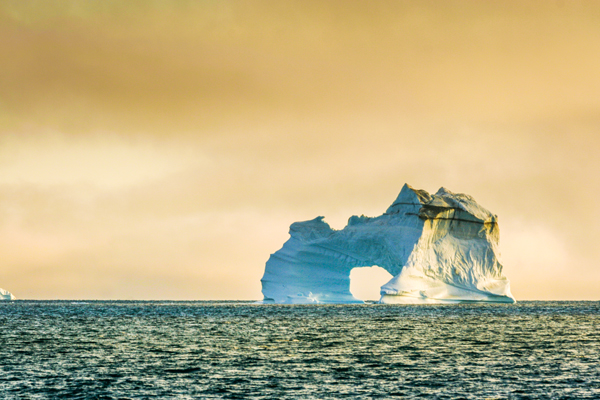 Famed asset manager Jeremy Grantham called upon the world to wake up to the threat of global warming, pollution and the depletion of the world's natural resources in a new white paper that concluded human civilization is in a race for its survival—and is losing.
Famed asset manager Jeremy Grantham called upon the world to wake up to the threat of global warming, pollution and the depletion of the world's natural resources in a new white paper that concluded human civilization is in a race for its survival—and is losing.
"Thirty years ago, the dire predictions of leading climate scientists were laughed at," wrote the founder of Boston-based asset manager GMO. "Now we watch these predictions coming true and ignore the data or pretend to. So, as the world starts to burn up, we twiddle our thumbs and talk about 'just another heat wave!' God help us."
The white paper, entitled "The Race of Our Lives Revisited," was released Wednesday and represents an expansion of a warning Grantham originally put forth in one of his quarterly investor letters in April 2013 and, more recently, at Morningstar's annual investment conference in June.
In his latest warning, Grantham goes into more detail on the global threats, using 35 pages of data and charts to lay out why human society should be urgently acting to address global warming, population growth and environmental destruction, and how these problems may soon contribute to a worldwide food shortage.
The root of the problem, as Grantham sees it, is that people have never been good at dealing with "long-term, slow-burning problems" and are instead more concerned about how to "stay alive and well-fed today."
"Beyond that we have a history of responding well only to more immediate and tangible threats like war," he wrote, adding that, in a bad turn of luck, today's political environment is trending in a way that only adds to the problem.
"We face a form of capitalism that has hardened its focus to short-term profit maximization with little or no apparent interest in social good," Grantham wrote. Making matters worse, he added, is that corporate influence over government "has grown so strong that only the biggest, most powerful corporations and the very richest individuals have any real say in government.”
"The timing could not be worse," he continued. "It is likely we in the U.S. will lose—indeed, we are losing already—the stable and reasonable society that we have enjoyed since the Great Depression."
Grantham argued that the environmental threats are accelerating and reaching a critical point, despite the fact that green technologies are booming and accounting for an increasingly larger share of the world's power consumption. But even as solar, wind and other green technologies surge, he wrote, it is expected that 50 percent of energy consumption will still be driven by fossil fuel by 2050.
Meanwhile, he argued, global warming is accelerating, as is the damage it is causing to the environment and human society. For example, he wrote, since 1950 the number of floods is up by 15 times; there have been 10 times as many deaths from droughts; wildfires are up sevenfold; and extreme temperature events are 20 times what they were.
He went on to describe how, as of July 25, weather stations around the world have reported 122 record highs in the last month, as opposed to only two record lows. The hottest overnight minimum temperature ever recorded in history—108.7 degrees Fahrenheit—was just a few months ago, on June 26, in Quriyat, Oman, Grantham noted.
"Some climate scientists have predicted that the flow of weather has been changed so that longer spells of heat and rain should be expected," he wrote. "And both of these are exactly what we have been getting."
While much attention has been placed on how the rising sea levels caused by climate change will impact coastal populations, Grantham noted that there's an even more serious consequence: the impact on the world's food supply.
"The more serious problem posed by ocean level rise will be the loss of the great rice-producing deltas: the Nile, the Mekong, the Ganges, and others, which produce about a fifth of all the rice grown in the world," he wrote.
With the increased number of droughts and floods, and the other ways rising temperatures decrease agricultural productivity, Grantham argued that "agriculture is in fact the real underlying problem produced by climate change."
Grantham also detailed other threats to the food supply, including soil erosion and toxins and pollutants in the soil, air and water, which are decreasing biodiversity and leading to what some are calling the "sixth great extinction." He noted one recent study in Germany finding that over the past 27 years there has been a 75 percent decline in the total quantity of flying insects. "These are our pollinators," Grantham wrote. "They have just gone missing."
In closing, Grantham noted it's not too late to reverse the tide. GMO, he said, is devoting assets to green technologies. People should also vote for "green politicians," he said, and do small things that can add up, like using LED lighting, buying fuel-efficient appliances, and buying electric cars. Grantham also urged people to take fewer jet flights and make greater use of video conferencing, and to consider having one less child.
"We will need all the leadership, all the science and engineering, and all the effort, and all the luck we can muster to win this race," he wrote. "It really is the race of our lives."